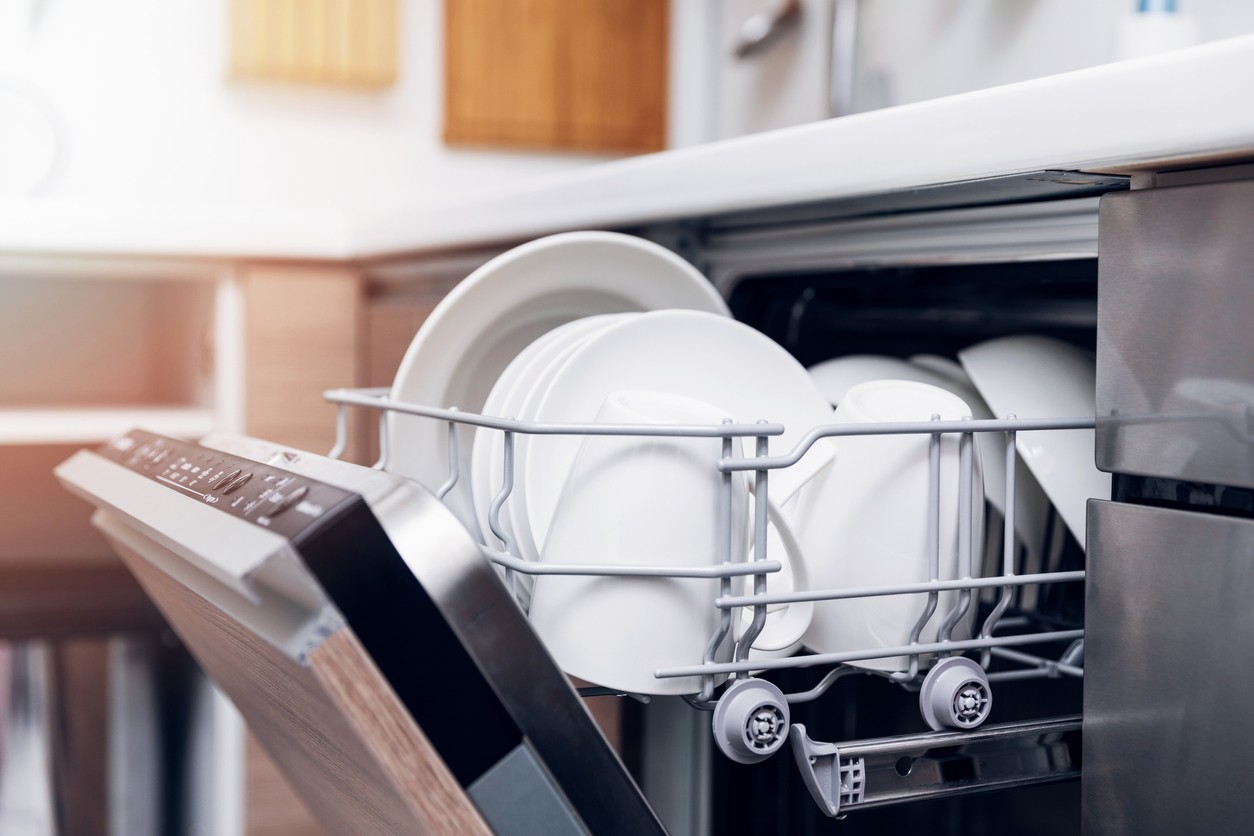Introduction –
Washing dishes is a task not every person anticipates. Frequently after a feast, we perpetually wish that a person or thing could do the dishes for us. Turns out there is a machine that does precisely that, and it is known as a dishwasher. A dishwasher is an appliance that computerizes the errand of cleaning dishes. You feed the dishes into the machine, add cleanser, and set a washing cycle. The dishwasher wraps up and offers you shimmering clean dishes. A dishwasher accompanies different wash cycles to clean our utensils. These wash cycles change water, temperature, and time as per your utensils. At the point when you start the washing cycle, the dishwasher takes the water required for cleaning from the associated hose and places the water at the lower part of the dishwasher. The water gets warmed to the necessary temperature. The higher temperature of the water assists cleanser with dissolving and eliminate food particles.
Within Dishwasher –
The siphon at the base drives the up water into the shower arms. These splash arms move this way and that, showering water on the dishware. Some shower arms pivot to cover a more extensive region. The water being spread is blended in with cleanser. It eliminates food particles from the plates. The washed food particles are trapped in a channel which you can arrange. The leftover water is depleted after the cleaning is finished. The last assignment the dishwasher does is to dry the flushed plates. The appliance has a radiator at the base which dries the wet dishes.
Benefits Of a Dishwasher –
Alongside washing dishes, dishwashers offer benefits like energy proficiency, less utilization of water and substantially more. Cleaning utensils actually: Regardless of how oily or slick your plates are, they will tell the truth and sans oil toward the finish of the washing cycle. With its different wash cycles, the dishwasher coordinates to the nature of cleaning dishes the hard way. It accepts comparable consideration for China as we do. Saving investment: Washing dishes on different occasions in a day channel you both genuinely and intellectually. With a dishwasher, you don’t need to do a lot other than stacking dishes, taking care of cleanser, and choosing the washing cycle. The dishwasher does all the work of cleaning dishes effectively.
Being Energy Productive –
Many will generally keep the faucet water running while at the same time cleaning plates with their hands. You squander a great deal of water in this cycle. Then again, a dishwasher requires next to no water to work. For each wash cycle, the appliance fills itself with a little amount of water. With less water use, you can get a good deal on water bills. A dishwasher’s expense can be an issue for some. The power the appliance consumes will build your power bill. Yet, the expense is worth the effort for every one of the elements the appliance offers. It shocks no one then that dishwashers are consistently becoming well known in families. Essentially, a dishwasher is a robot that cleans and flushes filthy dishes. People need to stack the dishes, add cleanser, set the legitimate washing cycles and turn it on; however, the dishwasher achieves an entire series of capabilities without anyone else.
Screening –
Also, dishwashers screen themselves to ensure everything is running appropriately. A clock (or a little PC) directs the length of each cycle. A sensor identifies the water and air temperature to keep the dishwasher from overheating or harming your dishes. Another sensor can figure out whether the water level gets excessively high and actuates the depleting capability to hold the dishwasher back from spilling over. A few dishwashers even have sensors that can identify the squalor of the water falling off the dishes. At the point when the water is adequately clear, the dishwasher realizes the dishes are perfect.




